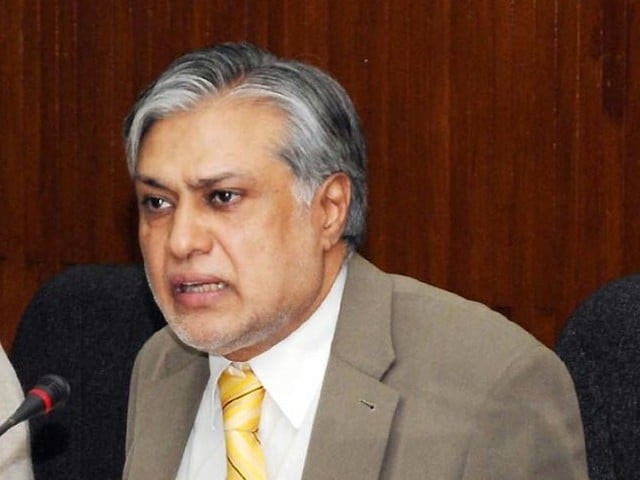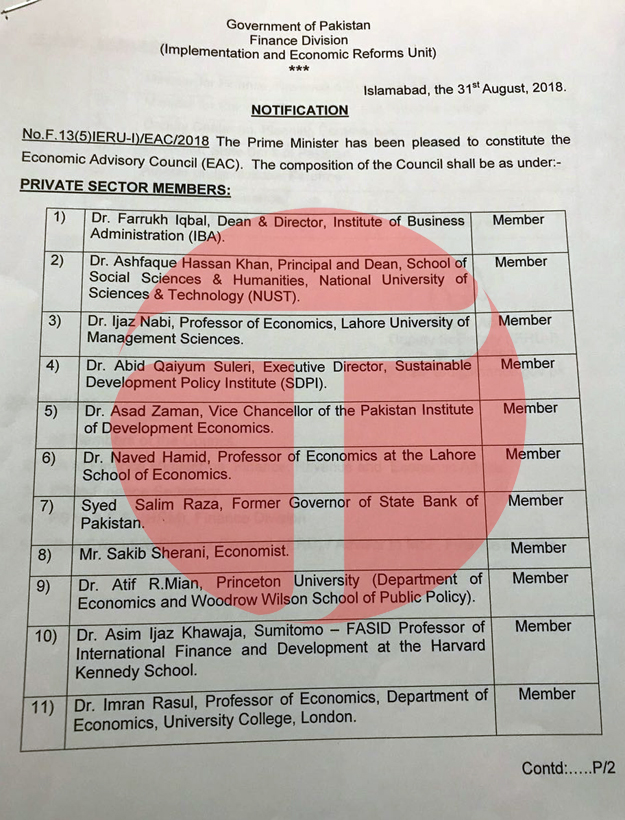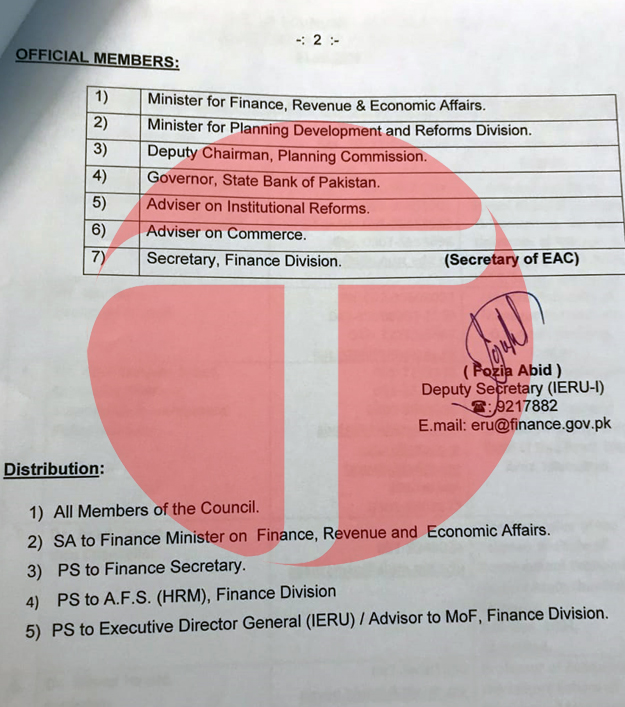Several Dar team members retained in reconstituted Economic Advisory Council
PM sets up 18-member council, 11 members come from private sector

Former Finance Minister Ishaq Dar.
PHOTO:FILE
The members who were a part of the council led by Dar were the staunch support the former finance minister's policies, which, the government says, are responsible for the country’s economic crisis.
As many as 11 out of 18 members are from the private sector, according to a notification issued by the finance ministry. Five of the 11 private sector members are also either directly or indirectly associated with each other. They are Navid Hamid, Ijaz Nabi, Dr Imran Rasul, Dr Asim Ijaz Khawaja and Dr Atif Mian. Hamid and Nabi are brothers-in-law.

Though the notification remains silent on the committee chairman, it is understood that the prime minister himself will retain the post. The government has also not announced the convener of the EAC.
Previously, two of the members of Dar's team, Dr Ashfaque Hassan Khan and Sakib Sherani, distanced themselves from the last government. "We realised that it was a futile exercise to be in the last EAC, as he would never give weight to independent advice," said Dr Khan.

There was a time when the EAC was an effective forum and used to meet on a monthly basis and contribute to economic policy making.
At least three members of the newly-constituted EAC are not economists. There are seven ex-officio members. They are finance minister, planning minister, deputy chairman of the Planning Commission, State Bank of Pakistan governor, adviser on institutional reforms Dr Ishrat Husain, adviser on commerce Razak Dawood and the finance secretary.
Dr Husain was the convener of Dar's EAC.
Pakistan needs $9b for running domestic economy: Umar
Although the Pakistan Tehreek-e-Insaf (PTI) had announced that it would set up an EAC and Business Advisory Council months before the elections, Finance Minister Asad Umar made telephone calls to most of the EAC members only this week.
The government has not yet notified the Business Advisory Council.
The EAC has been set up at a time when the finance ministry is preparing a new macroeconomic framework to deal with economic challenges. It has already given the first presentation to the premier on the set of options it deemed appropriate to handle the external sector and budget deficit challenges.
Umar's options include getting oil on deferred payments and rescheduling of maturing loans as an alternate to avoid the International Monetary Fund programme. He is also reviewing the possibility of issuing a 'Diaspora Bond' to raise funds from overseas Pakistanis. However, no decision has been made yet.
Crisis severe, no option to be ruled out, says Asad Umar
The immediate challenge for the government is to arrange finances to fill about a $10 billion gap that is arising due to higher outflows than estimated inflows.
Some of the new names on the EAC are Dr Farrukh Iqbal, Dr Atif Mian, Dr Asim Ijaz Khawaja and Dr Imran Rasul.
Among the old guards are Dr Ashfaque, dean at the NUST School of Social Sciences, Dr Nabi, a visiting faculty member at LUMS, Lahore, Dr Abid Qayum Suleri, executive director at SDPI, Dr Asad Zaman, vice chancellor of PIDE, Dr Ishrat and Sherani.
Farrukh Iqbal is director at the Institute of Business Administration, Karachi, and has more than 30 years of research and management experience in the World Bank. He has published work on various aspects of economic development, including growth, poverty, small and medium enterprises, trade and foreign investment, health insurance, local government development, and political economy issues.
Pakistan receives $439m in foreign loans in July
Dr Rasul is professor of Economics, University College, London. He is co-director, ESRC Centre for the Microeconomic Analysis of Public Policy (CPP), Institute for Fiscal Studies (IFS), Entrepreneurship Research Programme, and International Growth Centre (IGC).
Dr Khawaja is the Sumitomo-Foundation for Advanced Studies on International Development Professor of International Finance and Development at the Harvard Kennedy School, co-director of Evidence for Policy Design (EPoD), and co-founder of the Center for Economic Research in Pakistan (CERP).
Dr Atif is John H. Laporte, Jr. Class of 1967 Professor of Economics, Public Policy and Finance at Princeton University, and director of the Julis-Rabinowitz Center for Public Policy and Finance at the Woodrow Wilson School.
He is an expert on international debt markets. His latest book, House of Debt, builds on data to describe how debt precipitated the 'Great Recession'. The book explains why debt continues to threaten the global economy, and what needs to be done to fix the financial system.


















COMMENTS
Comments are moderated and generally will be posted if they are on-topic and not abusive.
For more information, please see our Comments FAQ